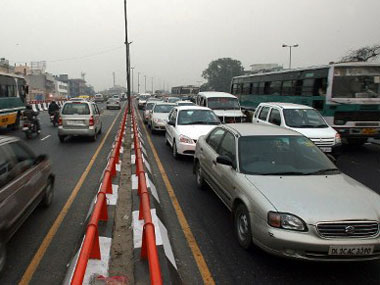It’s not just petrol vehicles, even diesel vehicles are not selling as well as before. Some leading manufacturers of diesel cars have begun to rationalise production to manage inventories, even as petrol car production declines.
Even in the premium and executive segments, which are generally considered to be immune to the rising cost of car ownership, demand for diesel vehicles has slowed.
According to data released by the Society of Indian Automobile Manufacturers (SIAM), while overall production of passenger cars in May remained in the positive territory, some car makers resorted to production cuts to deal with rising inventories. (SIAM data does not provide the diesel-petrol mix.) Maruti Suzuki India reported almost 6.5 percent cut in production - mainly petrol models - since the company has already acknowledged a decline in petrol car demand. For instance, Ford India produced 17.33 percent fewer cars; GM rationalised production by a fourth, while Fiat India’s production was down to less than half. Volkswagen India also produced 30 percent less than May last year.
[caption id=“attachment_339080” align=“alignleft” width=“380” caption=“hanks to robust demand for Maruti Ertiga and Mahindra SUV 500, both of which are selling primarily in diesel versions, UV segment has remained unaffected by the overall negative sentiment in the passenger vehicle market. Reuters”]  [/caption]
But the surge in utility vehicle (UV) sales sure beats this trend. Thanks to robust demand for Maruti Ertiga and Mahindra SUV 500, both of which are selling primarily in diesel versions, this segment has remained unaffected by the overall negative sentiment in the passenger vehicle market. Even vans - Maruti’s Eeco and Tata’s Ace Magic - sold much less year on year. In May, total passenger car production rose by just under 5 percent, while domestic sales growth was a mere 2.8 percent higher at 163,228 unit. UV sales were up 55 percent to 40,635 units, whereas vans sold just 17,271 units, a decline of 16 percent.
From May onwards, almost all diesel models from Tata Motors, Ford and General Motors have become available off the shelf, which is different from the situation a few months ago, when some diesel cars were on huge waitlists.
Impact Shorts
More ShortsSo, if the government does decide to either impose a specific tax on diesel vehicles or increase excise duty, overall car sales will fall, especially since consumers are unlikely to flock towards petrol-engine models. There is also a proposal to introduce dual pricing for diesel, where diesel is sold at higher prices for cars than for trucks and agricultural use.
The industry, on its part, has been seeking an increase of Rs 2-4 in diesel price with a simultaneous decline in petrol prices so that the government can generate additional revenues without hurting car industry growth. SIAM data showed that passenger cars reported the slowest growth in the past seven months since October 2011. Car sales were up 2.8 percent in May against almost a decline of 24 percent in October last year.
At least there is one silver lining: all this negative sentiment for cars could translate into something positive for two wheelers. SIAM’s director general, Vishnu Mathur, said that with petrol prices remaining high, more and more consumers may shift to bikes and scooters and therefore, growth in two wheeler industry is expected to remain strong despite a large base.
If we look at some specific, high-volume car models, the market mood becomes clear. Maruti Alto, the single-largest selling car in India, has seen a sharp decline since its customers are extremely price-sensitive. Plus, this mini car segment does not have a diesel option.
Combined sales of Maruti’s M800, A-Star, Alto and Wagon R fell below 30,000 units last month at 29,895 units against 42,125 sold in the same month last year. Chey Spark sold just 730 units (3,017 units), whereas combined sales of Hyundai Eon and Santro almost doubled to 11,538 units (6,675 units). But the surge in Hyundai Eon could not help the overall mini segment decline at 42,163 units (51,817 units). In the hatchback segment, seven of the 12 manufacturers reported decline in domestic sales. Here, combined sales of Hyundai’s i10 and i20 fell by over 4,000 units to 14,634 units (18,908 units); Nissan Micra was down to just 540 units (1566 units) while the VW Polo sold 2,037 units (3,486 units).


)

)
)
)
)
)
)
)
)



